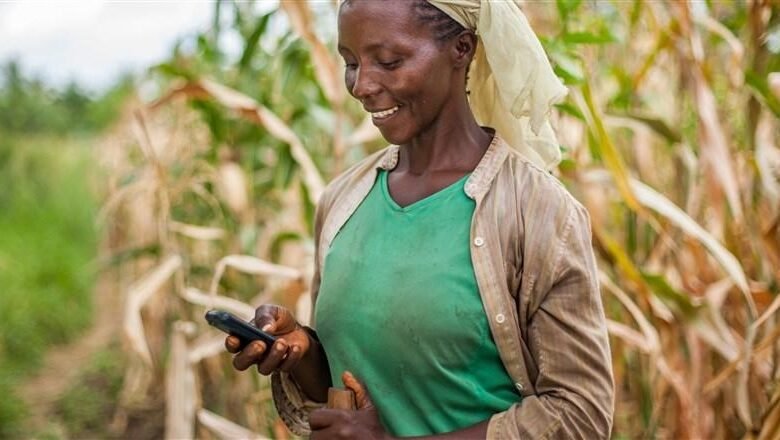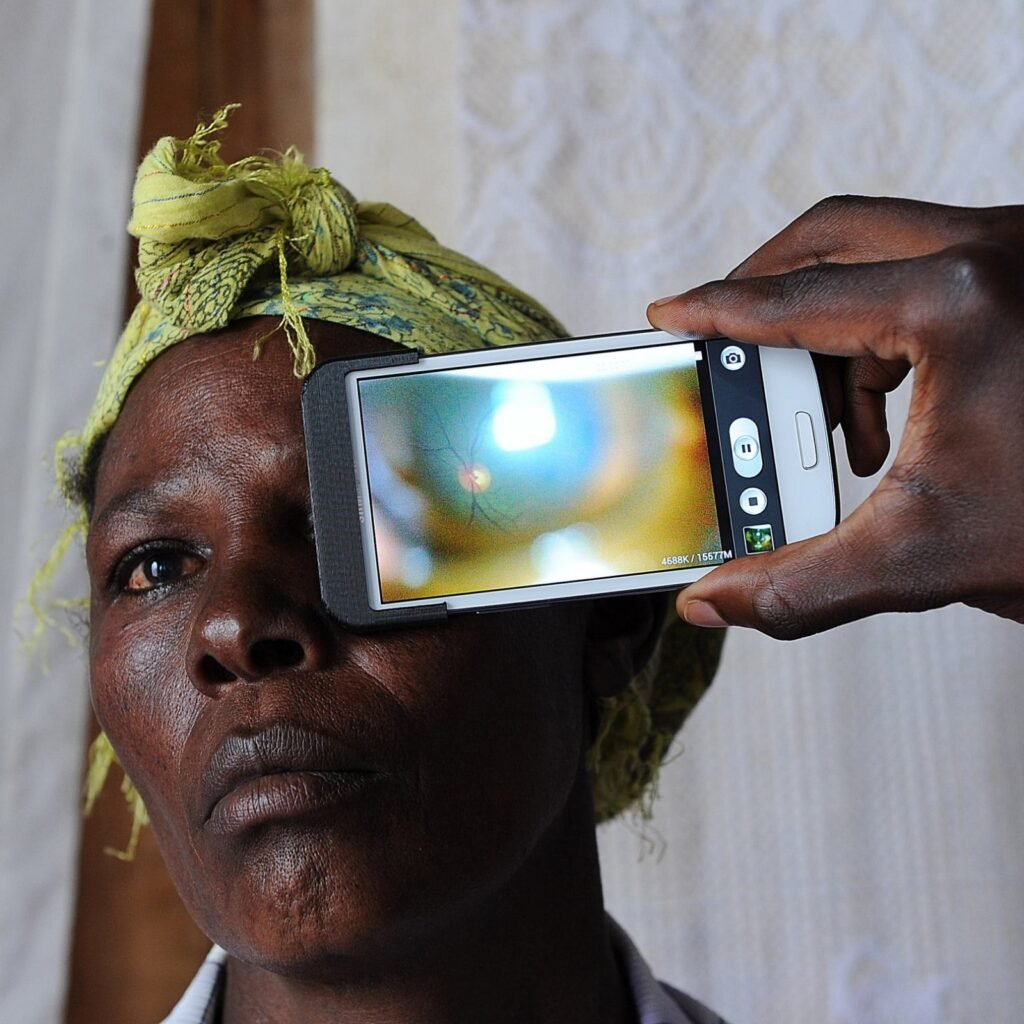Tech : a structuring ecosystem
The African continent, increasingly seen as a new playground for technology, is witnessing its tech ecosystem grow at a rapid pace. As policies adapt, investments flow in, players multiply, and innovations develop, Africa is undoubtedly entering the era of the 4th technological revolution.

By Dounia Ben Mohamed
The African tech ecosystem is in full swing. With over 700 million mobile phone users and steadily increasing Internet penetration, the continent is transforming into a fertile ground for digital innovations. Tech hubs have emerged in cities like Lagos, Nairobi, Cape Town, and Kigali, where startups are flourishing, attracting the attention of international investors.
African countries have made significant progress in technological infrastructure. Projects involving fiber optics and the extension of 4G/5G connectivity have improved Internet access in many regions. Meanwhile, numerous public and private initiatives have sprung up to support young tech companies, offering incubators, accelerators, and venture capital funds.
Attractiveness and maturity
The growth potential of the African market is attracting increasing investments. In 2022, African startups raised a record $4.3 billion, a 155% increase compared to the previous year. Although investments have decreased recently, following the global tech trend, new players, including pan-African funds, continue to bet on African innovation. While all sectors are affected, the most attractive remain fintech, agritech, edtech, and healthtech.
Fintech, in particular, is an area where Africa excels. Companies like M-Pesa in Kenya and Flutterwave in Nigeria have revolutionized financial services by offering mobile payment solutions and banking services accessible to millions of unbanked people.
Similarly, while the Big 4—Kenya, Nigeria, South Africa, and Egypt—concentrate most investments and see their tech ecosystems reach real maturity, other ecosystems are developing in Senegal, Côte d’Ivoire, Rwanda, and Tunisia.
Infrastructure, Financing, and Regulation: Obstacles to African Tech growth
However, the African tech ecosystem is not without challenges. The lack of funding remains a major obstacle for many startups. Despite increasing investments, they are often concentrated in a few countries and sectors, leaving many promising regions and industries behind.
Infrastructure remains a concern as well. Despite progress, access to reliable high-speed Internet is still limited in many rural areas. Additionally, the high cost of data can hinder technology adoption.
Regulatory and political issues pose another challenge. While Côte d’Ivoire has recently joined the ranks of countries with a Startup Act, following Tunisia, Senegal, and Rwanda, regulatory environments remain unstable, and cumbersome bureaucracies can discourage investors and entrepreneurs. Data protection and cybersecurity are also areas requiring increased attention to ensure user and business confidence.
Innovations and impacts
These challenges have not slowed the thirst for innovation across the continent, contributing to the transformation of African economies and societies. For example, the fintech sector, with companies like M-Pesa in Kenya, has revolutionized financial services by allowing over 50 million Africans to access banking services via their mobile phones. This has facilitated transactions, increased financial inclusion, and boosted small businesses. Similarly, agritech plays a crucial role in optimizing food supply chains and increasing agricultural yields. Twiga Foods, for instance, has helped reduce post-harvest losses and improve farmers’ incomes. In healthcare, innovations like Zipline’s drones in Rwanda, delivering vital medicines to remote areas, have saved thousands of lives.
In education, edtech solutions can bridge gaps in training and skills, preparing African youth for a digital future. In Kenya, mobile educational content allows students to learn even in areas without Internet access. The renewable energy sector also holds great promise. With abundant sun and wind, Africa has enormous potential for renewable energy solutions. Startups like Lumos and M-KOPA provide affordable solar solutions to off-grid homes and businesses. The rise of e-commerce offers opportunities for businesses to sell products beyond local borders. Jumia, often called the Amazon of Africa, paved the way by creating a platform for sellers and buyers across the continent. Today, hundreds of local startups offer similar services. Blockchain technology can solve many problems in Africa, particularly in transparency, security, and efficiency. Startups like BitPesa use blockchain to facilitate international payments and trade.
These examples show that tech not only drives economic growth but also addresses major social challenges, positioning Africa as a key player in global innovation.
AI’s role in accelerating digital transformation in Africa

Africa is innovatively adopting and adapting artificial intelligence (AI), integrating this technology across various sectors to address local needs and overcome the continent’s specific challenges. Governments, businesses, and African startups are playing a crucial role in this transformation.
Several African countries, such as Kenya, Nigeria, and South Africa, have launched initiatives and national policies to promote AI adoption. For instance, Rwanda has established a Center of Excellence in AI, aimed at developing local solutions and training AI talent. These government initiatives create a favorable framework for innovation and AI integration across different economic sectors.
Training and skill development are essential for AI adoption. Institutions like the African Institute for Mathematical Sciences (AIMS) and programs like Data Science Africa offer courses and workshops to train the next generation of AI scientists and engineers. Additionally, partnerships with tech giants like Google and IBM help provide educational resources and online learning platforms for students and professionals.
However, investments, while necessary, remain insufficient, and access to technology is limited by its cost. « Digital equipment and software are more expensive in US dollars in Africa than in other regions, discouraging businesses from adopting them, » observe experts from the International Finance Corporation (IFC) in a report titled « Digital Opportunities in African Businesses. » According to the survey, machines and digital equipment cost 35% more in sub-Saharan Africa than in the United States.
Public-private sector collaboration
Public-private sector collaboration is essential for AI development in Africa. Initiatives like the Smart Africa Alliance bring together African countries to share knowledge, resources, and best practices in technology and AI. Additionally, partnerships with international tech companies facilitate technology transfer and access to advanced infrastructure.
Regardless, Africa is resolutely determined to adopt and adapt AI to accelerate its digital transformation and build a prosperous and inclusive digital future for the continent.
By leveraging emerging technologies and overcoming obstacles, Africa can become a global leader in technological innovation and sustainable development.






